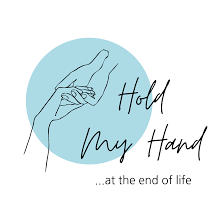
Sage Support and Advocacy: tectonic shift towards more self-determination of patients
Mervyn Taylor from the Irish organisation Sage Support & Advocacy opened the congress with a keynote. He explained the organisations’ work in the legal and social support of patients after a number of scandals on the treatment of patients in mental health hospital and a maternal health clinic. He explained that a slow revolution is underway, away from the idea of treating patients ‘in their best interest’, i.e. without consulting them, towards taking into account of their will and participation. His organisation notably supports patients who want to leave nursery homes and return to their homes, despite the opposition of care providers. Mr Taylor presented the recent changes to Irish law, introducing a new law on assisted decision-making and on the protection of adults. A main feature of these law is that patients are not considered as being incapacitated to take decisions for themselves: for each decision it is assessed whether this decision should be assisted or not. Sage also successfully appealed to the UN Committee on Torture with the evidence collected from a number of cases of abuse in care settings. This move brought a lot of criticism to the organisation, but Mr Taylor concluded: sometimes, you need to do good and damn for the consequences.
German national human rights institution: pressure from civil society s important
Ms Claudia Mahler, from the German National Human Rights Institution DIM, presented the UN-level work on the rights of older people; including th ework of the UN Open-Ended Working Group on Ageing, that identified many shortcomings to the existing human rights framework, with the consequence that older people especially in the field of care are not adequately protected. She insisted as well on the importance of self-determination in and that the ‘best interests’ principle which figures in the UN Convention on the Rights of the Child has not been integrated into the UN Convention on the Rights of Persons with Disabilities (UNCRPD)– because it is often used against a person on whom a decision is made. The framed the UN-level debate about the principle of autonomy, which underpins the conditions necessary for enjoying all human without being explicitly mentioned (except for the UNCRPD). Mr Mahler insisted on the role civil society organisations have to play to put pressure on governments to move towards recognising the need for an international convention on the rights of older people.
German official position: dialogue important on a possible UN convention
The German government was represented by Ms Barbara Wurster from the Federal Ministry for Women, Seniors, Youth and Families (BMFSFJ). She highlighted the importance Germany attaches to the UN process in the OEWG and the Madrid International Plan of Action for Ageing. Germany seeks to actively and constructively contribute to these debates. She discussed the law that regulates legal capacity and recent research into it, confirming that the formulation of the law itself seems not to be a problem, but that Germany is not convinced yet of the necessity for a legal instrument.
Local solutions and good practices
In two sets of discussions, other perspectives on the issue of autonomy and independence were discussed. It emerged that local support strutures are important to empower older people to exercise their right to autonomy. It is especially difficult to reach out to people who are not yet at risk of losing their autonomy, but feel isolated and may have a negative image of themselves and their ageing process. Some good examples were highlighted as well, such as local coordination centres for care, emergency helplines that are promoted in care homes, and the building-up of structural representation of senior citizens on political level in the region of Mecklenburg-Vorpommern. Representatives from Belgium pointed out the challenge to build up a long-term care and autonomy support system after the transfer of competences for care from the federal to the community level in Belgium. Care professional need to be trained on the principle of autonomy and it should be better understood that this does not necessarily mean overburdening of professional carers or huge costs: some care homes have a person-centred perspective on patients with dementia, or allow residents to control their own sleeping time, while operating with the same budget than others. More than resources, commitment from nursing home leadership and care staff is needed to mae the principle of autonomy and self-determination a reality.
AGE participated in the workshops highlighting AGE’s contributions to the UN Open-Ended Working Group on Ageing, the United Nations process for the Madrid International Plan of Action on Ageing and the discussions among AGE members on autonomy, legal capacity, elder abuse and non-discrimination.
For more information, please contact Philippe Seidel, philippe.seidel@age-platform.eu





